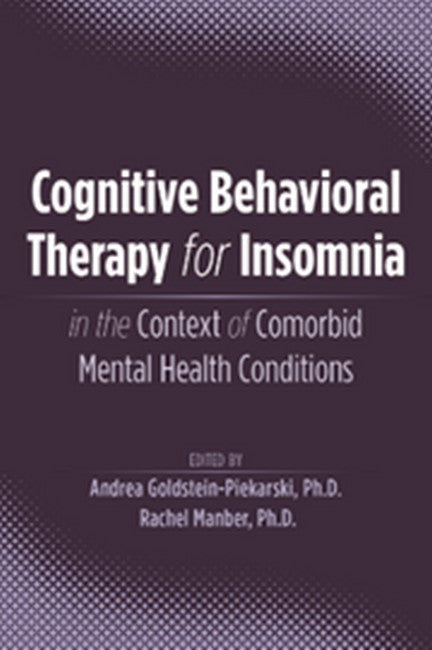An estimated 6%-10% of the U.S. population meets the criteria for insomnia disorder-a figure that is even higher among individuals experiencing psychiatric conditions. Evidence suggests that although experiencing sleep difficulties is a diagnostic criterion in several psychiatric conditions and is experienced in the context of some medical disorders, insomnia is a distinct disorder, intricately interwoven with co-occurring medical and psychiatric conditions.
This insightful new book explores Cognitive Behavioral Therapy for Insomnia (CBT-I) in a manner relevant to patients seen by mental health clinicians. CBT-I is an effective nonpharmacological treatment approach grounded in the sciences of sleep and behavior change. The volumes distinguished contributors carefully consider the components of CBT-I and provide guidance on customizing treatment for patients with and without co-occurring psychiatric conditions.
After an initial review of the etiology, pathophysiology, and diagnostic features of insomnia, the authors explore a range of topics, including the following:
* Evidence supporting the efficacy of CBT-I and its components
* Pharmacological approaches and strategies for tapering patients off hypnotic medications while they undergo CBT-I
* Applying CBT-I in the context of specific psychiatric disorders such as ADHD, depression, schizophrenia, bipolar disorder, and substance use
* Adapting CBT-I for unique patient populations, including adolescents, pregnant patients, and older adults
* Cultural considerations for treating insomnia in Black, Hispanic, and Asian patients
Case examples, detailed tables, and key points illustrate the application of CBT-I principles.
Insomnia is not only debilitating and life-altering for those affected; it also carries significant economic and public health consequences. Cognitive Behavioral Therapy for Insomnia in the Context of Comorbid Mental Health Conditions provides clinicians with the knowledge and tools to offer meaningful relief to their patients.

